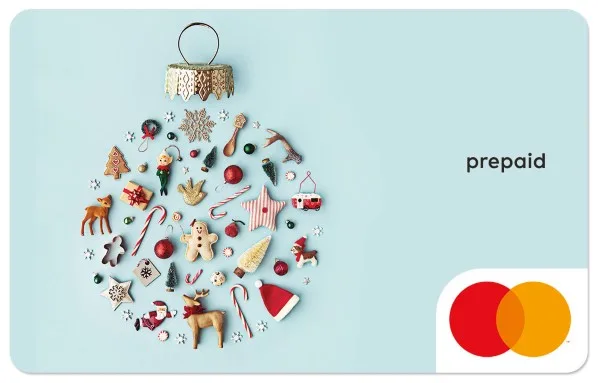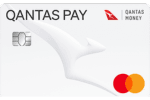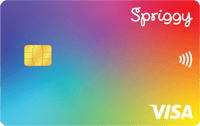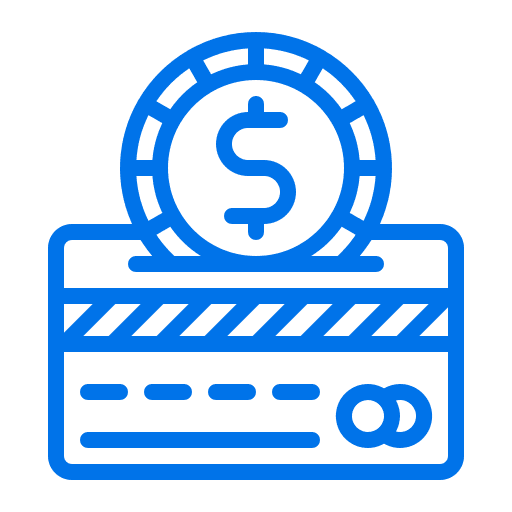Key takeaways
- With a prepaid debit card you can load it up with cash and then spend it online, locally or overseas. They're convenient, simple to use and are often reloadable.
- Some prepaid cards are Visa or Mastercard cards, but they're not actually credit cards. You can only spend the money you put on the card.
- Prepaid travel cards are popular for use when traveling overseas as a way to avoid currency conversion fees. Other types of prepaid cards include gift cards and cards for kids.
Understanding the different types of prepaid cards
Other types of prepaid cards in Australia include reloadable prepaid cards, gift cards, travel cards and prepaid cards for kids.
| Type | Description | Reloadable | Card cost | Where to buy |
|---|---|---|---|---|
Prepaid Visa or Mastercard cards  | Designed to use in Australia. Pre-load funds and use anywhere Visa or Mastercard is accepted (online or in person). | Yes | $0 - $10 | Australia Post, banks, online |
Gift cards  | You can load up a set amount of money and spend it in store or online. Limited to specific stores and may expire. | No | $0 | Online and in-store at Coles, Woolworths and other major retailers |
Travel money cards  | Designed to use overseas. Pre-load foreign currency / currencies and use it like a debit card to make purchases or withdraw cash. | Yes | $0 - $5 | Online at the Qantas Money website |
Kids cards  | Pocket money management for parents and kids. No cash withdrawals but designed to make purchases wherever cards are accepted. | Yes | Fees for card and monthly membership fees | Online with ZAAP or Spriggy |
Prepaid credit card benefits and features
Every prepaid card is different, but some popular features and benefits include:
- The ability to load and top up your balance with cash
- Access to multiple currencies
- Lower fees and charges than credit cards
- No interest rates
- Usually available to people at least 16 years old
- Some earn rewards points
- Money-tracking tools
- Security against theft, loss and fraud

"If you enjoy online shopping but worry about your details being exposed, a prepaid credit card could come in handy. If you only ever use the prepaid card to buy online and your details are ever compromised, you'll know that it's just the prepaid card number out there and not your everyday debit or credit card!"
What types of prepaid cards are available in Australia?
- Everyday prepaid cards. These cards offer convenience for day-to-day spending and could include tap-and-go payments, balance-tracking features and fast, easy money loading options.
- Prepaid travel cards. You can use a prepaid travel card to pay for things when you're overseas and avoid the currency conversion fees charged by some other cards. You just load Australian dollars onto the prepaid card, then convert the money into supported foreign currencies at a locked-in exchange rate.
- Gift cards. Prepaid credit cards can be gifted and loaded with a nominated amount or purchased with a set amount already on the card. These gift cards are typically branded and can be used at specific stores.
- Money transfer cards. Money transfer cards allow multiple people in different countries to access the funds in a single account. These accounts come with 2 cards. A person deposits money in the account and someone with the other card in a different country can access the funds as soon as they clear in the account.
- Reward cards. Some prepaid cards are also linked to reward programs and earn points as you spend. For example, the Qantas Pay Card.
Are there any prepaid cards for teenagers?
- Spriggy. This is a pocket money app with a prepaid Visa card. Kids can learn about money with help from their parents, spend prepaid amounts and track savings goals.
- Kit. Issued by the Commonwealth Bank, Kit is a prepaid card for kids that comes with an app. You can set limits on the card, schedule chores plus pocket money, and generally teach kids about money.
While there are debit cards and bank accounts designed especially for teenagers and some for younger children, you could also consider a prepaid card to help a teenager learn how to manage their money on plastic by limiting the temptation to overspend.

"Prepaid gift cards make a convenient gift. But they can expire, and have limits on where you spend them. They're not a cash substitute. Prepaid debit cards like the ones you can get from Australia Post are a great way to limit your spending. And you can shop online without exposing your main accounts. But a debit card linked to a bank account is more flexible and convenient. A credit card lets you build up good credit and offers more security features and protections."
How to compare prepaid cards

Preloaded vs. reloadable
Some prepaid cards such as gift cards have a fixed amount of money to use. Meanwhile, travel cards and other reloadable cards allow you to top up your balance.

Card acceptance
Most reloadable prepaid cards are Mastercard or Visa cards that can be used in Australia and worldwide. Some places may not accept prepaid cards, such as hotels or ATMs. It's a good idea to have a back-up payment option with you (e.g. a credit card, debit card or cash).

Fees
Prepaid cards may have fees, including purchasing or set-up, loading and currency conversion fees. Other fees and costs could be for inactivity, card replacement, cancellation, declined transactions and ATM withdrawals.

Supported currencies
Most prepaid travel cards in Australia support up to 10 international currencies. This may include USD, GBP, EUR, NZD and more. When you spend in a local currency supported by and loaded on your card, you can avoid foreign currency conversion fees.

Load limits
Prepaid cards usually have a maximum amount of money you can carry on the card at a time. Check these details before you apply to make sure these limits don't restrict the way you use the card.

Rewards
If you want to reward your spending, consider using a frequent flyer travel card such as the Qantas Pay.
Remember that every prepaid card is different. Checking individual details now will help you make a more informed decision when choosing the right option for you.
Compare prepaid cards
Here is a list of some of the most common prepaid, reloadable cards, including some travel cards and cards you can use for everyday spending.
| Provider and card | Type | Reloadable | Minimum and maximum load (AUD) | Issue fee | Where to get it |
|---|---|---|---|---|---|
| Australia Post Travel Platinum Mastercard | Mastercard | Yes | $100 – $100,000 (or foreign currency equivalent) | $0 | Order online or in selected Post Offices |
| Australia Post Everyday Mastercard | Mastercard | Yes | $20 – $25,000 (or foreign currency equivalent) | $7.95 | Order online or in selected Post Offices |
| CommBank Travel Money Card | Mastercard | Yes | $1 – $100,000 | $0 | Order online |
| Cash Passport Platinum Mastercard | Mastercard | Yes | $100 – $100,000 | $0 | Order online |
| Qantas Pay | Mastercard | Yes | $50 – $20,000 | $0 | Order online |
| Travelex Money Card | Mastercard | Yes | – | Order online | |
| Westpac Worldwide Wallet | Mastercard | Yes | Maximum available balance of $50,000 | $0 | Online or in-branch |
Finder survey: Have Australians ever used a prepaid travel money card?
| Response | |
|---|---|
| Yes | 48.56% |
| No | 47.77% |
| Unsure | 3.67% |
Where can I buy a prepaid credit card?
You can buy or order most prepaid credit cards online, or at participating retailers and bank branches.
- Australia Post offers several prepaid Mastercards, including a card for everyday spending and a travel card.
- Officeworks sells prepaid Visa gift cards.
- Coles sells various non-reloadable gift cards you can use at Coles (some cards also let you spend money Kmart, Target and Myer). Coles also sells digital prepaid Mastercards that you can only use online.
- Woolworths sells various non-reloadable gift cards you can use at Woolworths and other stores.
- Online. Companies like Wise and Revolut let you sign up for a card online.
Things to know before getting a prepaid card
- Age. Some prepaid credit cards have a minimum age requirement. For example, you must be at least 14 years old to get the CommBank Travel Money Card and at least 16 to get the Qantas Pay Card.
- Personal details. You may need to provide your full name, residential address, contact phone number, date of birth or other details to help verify your identity.
- Initial load amount. Some cards require you to load a minimum amount onto the card when you first get it.
- Card activation. You need to activate the card before you can use it. This may be done in person, over the phone or online.
- PIN. Prepaid credit cards may come with an assigned PIN, or require you to choose a PIN when you activate the card.
- Signing the card. You need to sign the prepaid card to validate the zero liability policy that helps protect you against any unauthorised transactions.
Want to compare a wider range of credit cards? Check out the latest offers for rewards, low rates and more on Finder. You can also check out our top picks for the best credit cards.
Sources
More guides on Finder
-
Best international credit cards
Find credit cards that make international spending cheaper with 0% international transaction fees.
-
American Express statistics
Insights and analysis on American Express credit cards, costs, acceptance and more.
-
Instant approval credit cards
Compare credit cards that give you an outcome within 60 seconds of when you submit your application online and find out how to increase your chances of getting this type of "instant" credit card approval.
-
Introductory credit card offers for new customers
Compare introductory credit card offers that give you bonus rewards points, 0% p.a. balance transfers, interest-free periods and waived annual fees when you sign up for a new card.
-
Cashback credit cards — up to $500 back
Get a percentage of your spend back, gift cards or vouchers with a cashback credit card. Find out more and compare current offers in our guide.
-
Best Credit Cards in Australia right now
You deserve the best credit card. Let us help you find it.
-
Best Qantas credit cards
Compare the best Qantas frequent flyer credit cards based on bonus point offers, points per $1 spent, rates, fees and other features so you can find a card that works for you.
-
Best Velocity credit cards
Check out bonus point offers and travel perks such as lounge access and complimentary insurance with these Velocity Frequent Flyer credit cards.
-
Easy credit cards to get approval for in Australia
When you apply for a credit card online, you could receive a response within 60 seconds. Find out how you to find a card that you're eligible for and increase your chances of approval.
-
No international transaction fee credit cards
Find out how you can keep your overseas spending costs down by comparing credit cards with no foreign transaction fees and no currency conversion fees.


